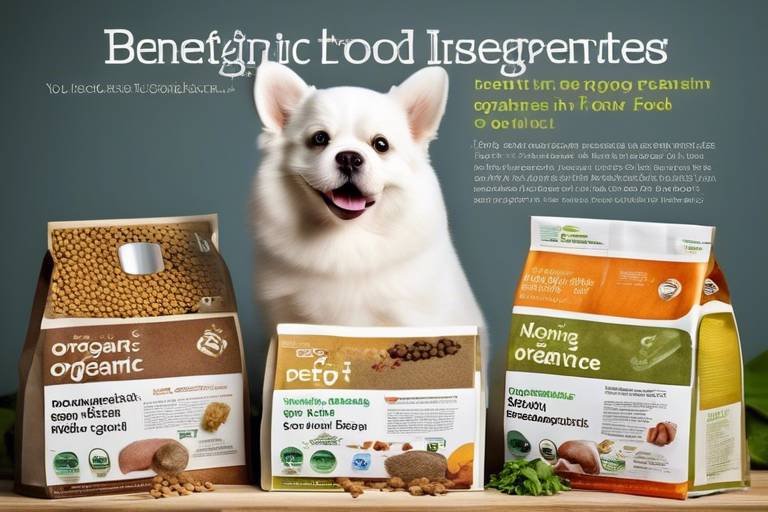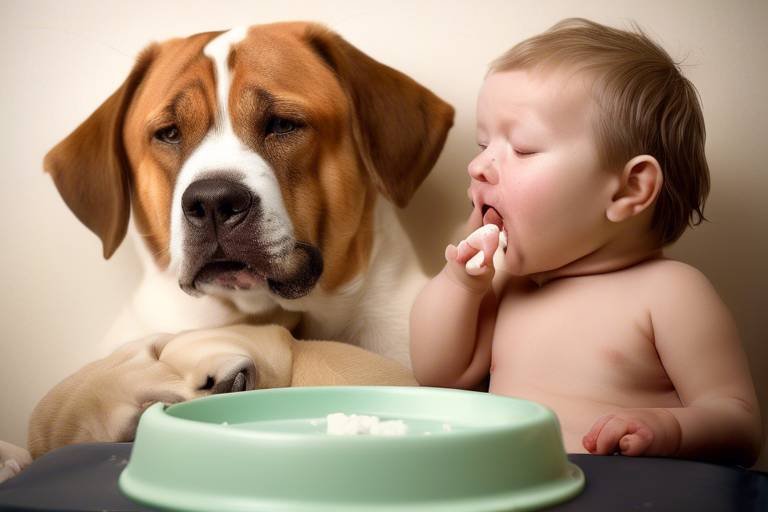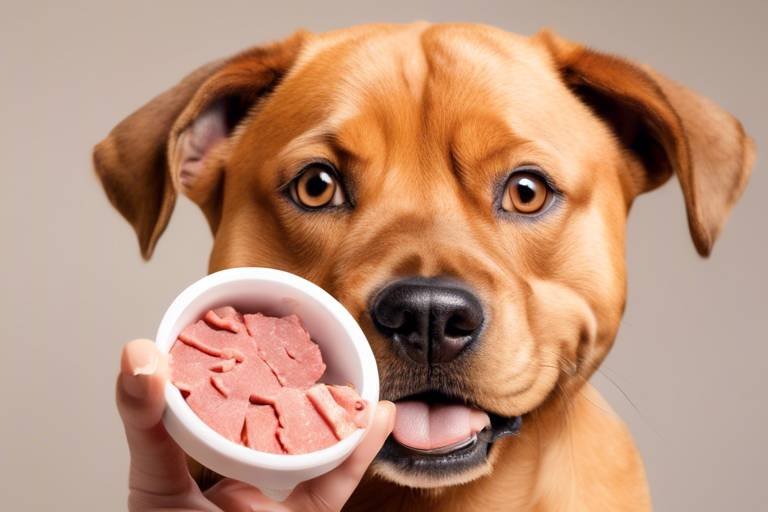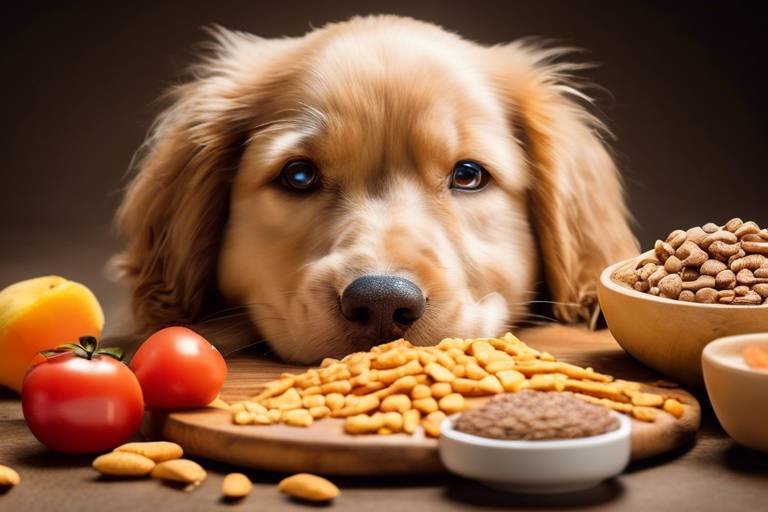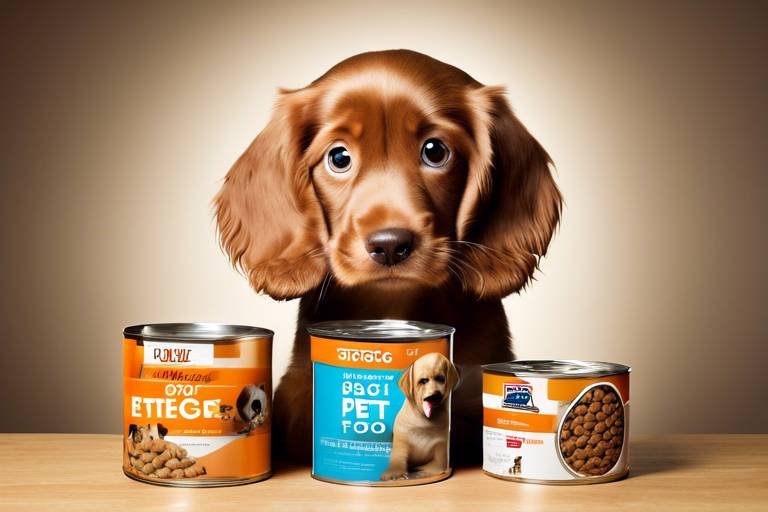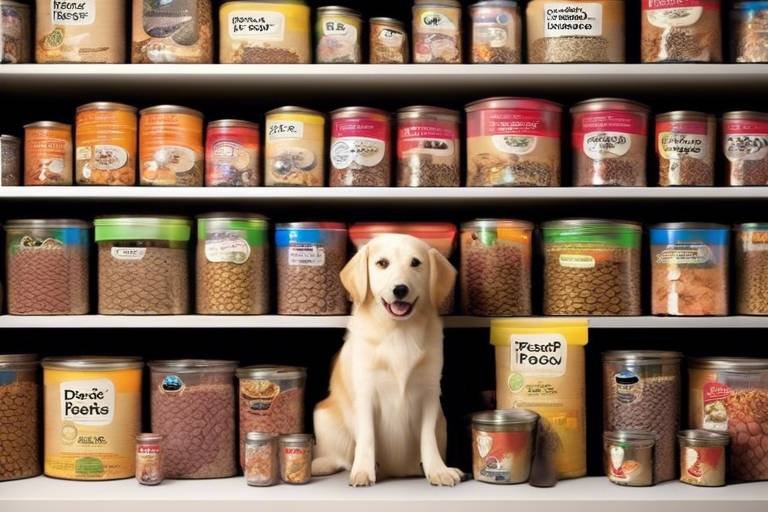Understanding the Benefits of Dehydrated Pet Food
Have you ever wondered if your furry friend is getting the best nutrition possible? As pet owners, we want nothing but the best for our companions, and that's where dehydrated pet food comes into play. This innovative option is rapidly gaining traction among pet enthusiasts, and for good reason. With its impressive nutritional profile, convenience, and a host of health benefits, dehydrated pet food is revolutionizing the way we think about feeding our pets. In this article, we will dive deep into the advantages of dehydrated pet food, exploring why it might just be the perfect choice for your beloved pet.
One of the standout features of dehydrated pet food is its ability to retain essential nutrients that are often lost in traditional cooking methods. When pet food is cooked at high temperatures, many vital vitamins and minerals can be destroyed, leaving your pet with a less nutritious meal. However, dehydrated food undergoes a gentle drying process, preserving these nutrients. This means that your pet receives a meal packed with essential vitamins, minerals, and antioxidants that support their overall health and well-being. Imagine feeding your pet a meal that’s as close to their natural diet as possible—this is what dehydrated food aims to achieve!
Let’s face it, life can get busy, and sometimes preparing a fresh meal for your pet can feel like a daunting task. That’s where dehydrated pet food shines! Its lightweight and compact nature make it incredibly easy to store. You can tuck it away in a pantry or cupboard without worrying about it taking up too much space. Plus, it doesn’t require refrigeration, which means it’s perfect for those spontaneous trips or when you’re short on time.
One of the key benefits of dehydrated food is its extended shelf life. Unlike traditional wet foods that can spoil quickly, dehydrated options can last for months, if not years, without losing their nutritional value. This feature not only saves you money but also reduces food waste, making it a win-win situation for both you and the environment.
When you consider the long-term benefits, dehydrated pet food often proves to be more cost-effective. While the initial purchase price might be slightly higher than standard kibble, the concentrated nature of dehydrated food means you’re actually getting more value. A little goes a long way, and you might find yourself spending less over time as you buy fewer bags of food. It’s like investing in a high-quality product that pays off in the long run!
Worried about complicated meal prep? Fear not! Preparing dehydrated pet food is incredibly simple and quick. All you need to do is add water, let it rehydrate for a few minutes, and voilà! You have a delicious, nutritious meal ready for your pet. This ease of preparation allows you to spend less time in the kitchen and more time enjoying your pet’s company.
Beyond nutrition, dehydrated pet food can contribute to better health outcomes for your furry friend. Many pet owners report improvements in digestion, coat health, and even energy levels after switching to dehydrated options. The high-quality ingredients and lack of fillers mean that pets are consuming a diet that supports their unique needs. For instance, pets with sensitive stomachs often thrive on the easily digestible nature of dehydrated food, leading to fewer gastrointestinal issues.
Another fantastic aspect of dehydrated pet food is the variety of flavors and ingredients available. Whether your pet prefers chicken, beef, or even exotic proteins like fish or lamb, there’s a dehydrated option out there to cater to their taste buds. This variety not only keeps mealtime exciting for your pet but also ensures they receive a well-rounded diet. After all, just like us, pets can get bored with the same old food day in and day out!
Some pets require special diets due to allergies or health conditions, and dehydrated food can effectively meet these specific dietary requirements. Many brands offer specialized formulas designed for pets with sensitivities, ensuring that every meal is tailored to their unique needs. It’s like having a personal chef who understands your pet’s dietary restrictions!
When it comes to our pets, safety and nutrition are paramount. Quality control measures in dehydrated pet food production ensure that only the best ingredients are used. Many reputable brands source high-quality meats, vegetables, and grains, giving you peace of mind that you’re feeding your pet a safe and nutritious meal. It’s essential to choose brands that prioritize quality, so you can feel confident in your pet’s diet.
Lastly, choosing dehydrated pet food can have a lower environmental impact compared to traditional pet food. The production process often requires less energy and water, and the reduced packaging waste contributes to a more sustainable approach. By opting for dehydrated options, you’re not just making a smart choice for your pet’s health—you’re also making a positive contribution to the planet.
- Is dehydrated pet food suitable for all pets? Yes, most pets can enjoy dehydrated food, but it’s always best to consult with your veterinarian, especially if your pet has specific health concerns.
- How do I transition my pet to dehydrated food? Gradually mix dehydrated food with your pet's current food over a week or two to help them adjust.
- Can I feed my pet only dehydrated food? Yes, many pets thrive on a balanced diet of dehydrated food, but ensure it meets their nutritional needs.
Nutritional Advantages
When it comes to our furry friends, their health and well-being are always at the forefront of our minds. One of the standout features of dehydrated pet food is its ability to retain essential nutrients that can often be lost in traditional cooking methods. You might be wondering, how does this actually work? Well, the process of dehydration removes moisture without compromising the integrity of the ingredients, allowing the vital vitamins, minerals, and proteins to remain intact. This means that your pet is not just getting a meal; they are receiving a nutritional powerhouse with every bite!
Let’s break it down further. Dehydrated pet food is typically made from high-quality meats, fruits, and vegetables, which are rich in nutrients. For example, the proteins found in dehydrated meats are crucial for muscle development and overall energy levels. Meanwhile, the inclusion of fruits and vegetables provides antioxidants that can help combat oxidative stress, which is a fancy way of saying they help keep your pet's cells healthy and functioning properly.
Moreover, many dehydrated pet food brands are formulated to cater to specific dietary needs. This means that if your pet has allergies or sensitivities, you can find a dehydrated option that avoids common allergens while still providing a balanced diet. For instance, some brands offer grain-free options or formulas rich in omega fatty acids, which are known to support skin and coat health. It's like having a tailored meal plan that ensures your pet gets exactly what they need!
To give you a clearer picture, here’s a quick comparison of the nutritional content between traditional pet food and dehydrated options:
| Nutrient | Traditional Pet Food | Dehydrated Pet Food |
|---|---|---|
| Protein | Varies by brand | High-quality, concentrated |
| Vitamins | May lose potency during cooking | Retained through dehydration |
| Minerals | Often added post-cooking | Naturally present in ingredients |
| Digestibility | Varies by ingredient quality | Generally higher due to raw ingredients |
As you can see from the table, dehydrated pet food often offers a more concentrated and nutrient-dense option compared to its traditional counterparts. This can lead to better overall health outcomes for your pet, including improved digestion and energy levels. Plus, with all the nutrients packed into each serving, you may find that your pet requires less food to meet their dietary needs, which is another win for both their health and your wallet!
In conclusion, the nutritional advantages of dehydrated pet food are compelling. By choosing this option, you're not only providing your pet with a meal; you're investing in their long-term health and vitality. So, the next time you're at the pet store or browsing online, consider picking up some dehydrated food. Your pet will thank you for it!

Convenience and Storage
When it comes to feeding our furry friends, convenience is often a top priority for pet owners. Dehydrated pet food shines in this area, offering a practical solution for busy lifestyles. Imagine this: after a long day at work, the last thing you want to do is spend hours preparing your pet's meal. With dehydrated food, you can simply add water, wait a few minutes, and voilà! You have a nutritious meal ready to serve. This ease of preparation is a game-changer, especially for those juggling multiple responsibilities.
Moreover, the lightweight nature of dehydrated food means it’s easy to store and transport. Whether you’re heading out for a weekend camping trip or just looking to save space in your pantry, dehydrated pet food takes up minimal room. No more bulky bags of kibble or wet food cans cluttering your kitchen! You can easily stack these food packets, making your storage woes a thing of the past.
Another significant advantage is its long shelf life. Dehydrated pet food can last for months, even years, without spoiling, provided it's stored correctly. This longevity not only saves you money by reducing waste but also ensures you always have a reliable food source for your pet. Instead of rushing to the store every few weeks, you can stock up on a few bags of dehydrated food and have peace of mind knowing your pet's meals are taken care of.
Let’s break down some key convenience factors:
- Lightweight and Portable: Perfect for travel and easy to handle.
- Minimal Storage Space: Stacks neatly, saving valuable pantry space.
- Long Shelf Life: Reduces the frequency of shopping trips and waste.
In essence, dehydrated pet food is not just about nutrition; it’s about enhancing your day-to-day life as a pet owner. By choosing this option, you can enjoy more quality time with your pet rather than being tied down in the kitchen. Convenience and storage benefits make dehydrated pet food an appealing choice for modern pet owners looking to simplify their lives without sacrificing their pet's health.
Long Shelf Life
One of the standout features of dehydrated pet food is its remarkable . Unlike traditional wet or dry pet foods that can spoil quickly once opened, dehydrated options can last for months, or even years, when stored properly. This longevity not only makes it a practical choice for pet owners but also offers peace of mind. Imagine being able to stock up on your pet's favorite meals without the constant worry of them going bad. It's like having a pantry full of gourmet meals ready to go at a moment's notice!
But how does this work? The dehydration process removes moisture from the food, which is a key factor in bacterial growth and spoilage. With the water content significantly reduced, the food becomes less susceptible to mold and other spoilage agents. This means that you can keep a stash of dehydrated food on hand without the fear of it expiring before you get a chance to use it. It's a game-changer for those who may not have the time to shop frequently or for those who travel often with their pets.
Here’s a quick comparison to illustrate the benefits:
| Type of Pet Food | Shelf Life | Storage Requirements |
|---|---|---|
| Dehydrated Pet Food | 12-24 months (unopened) | Cool, dry place |
| Canned Pet Food | 2-5 years (unopened) | Cool, dry place |
| Dry Kibble | 6-12 months (after opening) | Cool, dry place |
Not only does this extended shelf life save you money—reducing the need for frequent purchases—but it also minimizes food waste. You can buy in bulk, knowing that your pet's meals will remain fresh and nutritious for a long time. Think of it as a pantry full of potential, just waiting for the right moment to be served! Plus, for those who are environmentally conscious, less food waste contributes to a smaller carbon footprint.
In addition, when you do decide to prepare a meal, the process is as simple as adding water. This ease of preparation means that you can whip up a delicious, nutritious meal for your pet without spending hours in the kitchen. It’s convenience at its best, allowing you to focus on what really matters—spending quality time with your furry friend.
Cost-Effectiveness
When it comes to feeding our furry friends, it's not just about what goes into their bowls; it's also about how much we spend. Dehydrated pet food has emerged as a surprisingly cost-effective option for pet owners looking to balance quality and expense. You might be wondering, "How can something that seems premium be budget-friendly?" Well, let’s break it down.
First off, dehydrated pet food is often more concentrated than traditional wet or dry kibble. This means that a smaller amount is required to meet your pet’s nutritional needs. For example, a serving of dehydrated food can expand significantly when water is added, providing a substantial meal without the hefty price tag. Consider this: a typical bag of dehydrated food might weigh less than a traditional bag but can yield more meals. This efficiency translates into savings that can add up over time.
Moreover, when you look at the long-term costs, dehydrated food often leads to fewer veterinary bills. Pets that consume high-quality, nutrient-dense diets tend to have fewer health problems. This can mean fewer trips to the vet for digestive issues, obesity, or skin problems, which can be financially draining. In fact, a study showed that pets who eat premium diets have a 40% lower chance of developing chronic health issues compared to those on lower-quality foods. Isn't that a compelling reason to consider switching?
Another factor to consider is waste reduction. Traditional pet food often comes with a lot of packaging and can spoil quickly, leading to food waste. Dehydrated food, on the other hand, has a much longer shelf life. This means you can buy in bulk without the fear of it going bad before your pet finishes it. In fact, many brands offer bulk purchasing options that can further reduce costs. Just think of it as an investment in your pet’s health that pays off in the long run.
To illustrate the cost-effectiveness of dehydrated pet food, here's a quick comparison:
| Type of Pet Food | Average Cost per Month | Average Number of Meals | Cost per Meal |
|---|---|---|---|
| Traditional Dry Kibble | $50 | 60 | $0.83 |
| Dehydrated Pet Food | $70 | 90 | $0.78 |
As you can see, while the upfront cost of dehydrated food may seem higher, the overall value and savings become evident when you consider the number of meals you can prepare and the potential health benefits. In the end, choosing dehydrated pet food is not just about feeding your pet; it's about investing in their health and your wallet.
Easy Preparation
When it comes to feeding our furry friends, convenience is often at the top of our list. Dehydrated pet food shines in this area, making meal prep a breeze for pet owners. Imagine a world where you can whip up a nutritious meal for your pet in just a matter of minutes! With dehydrated food, all you need to do is add water, and voilà, you have a delicious meal ready to serve. It's like magic, but really, it’s just smart food technology.
One of the best parts about dehydrated pet food is its simplicity. You don't need to be a gourmet chef to prepare it. The process typically involves a few straightforward steps:
- Measure Take the recommended serving size of the dehydrated food.
- Add Water: Mix in the appropriate amount of warm water to rehydrate the food. This usually takes just a few minutes!
- Stir and Serve: Give it a good stir to ensure everything is well mixed, and then serve it up to your excited pet.
Not only is the preparation quick, but it also allows you to spend more quality time with your pet rather than slaving away in the kitchen. Think about it: instead of chopping veggies or measuring out kibble, you can enjoy a game of fetch or a cuddle session. Plus, there’s no need to worry about leftovers going bad since you can prepare just the right amount for each meal.
Moreover, dehydrated pet food is often packaged in lightweight, resealable bags, which makes it easy to store and transport. This is especially beneficial for pet owners who love to travel or go on adventures with their pets. You can simply pack a bag of dehydrated food, and you’re set for the trip. No more lugging around heavy cans or bulky bags of traditional pet food!
In summary, the easy preparation of dehydrated pet food not only saves time but also enhances your pet-parenting experience. With just a few simple steps, you can provide your pet with a nutritious, tasty meal that supports their health and happiness. It’s a win-win situation!
Q: How long does it take to prepare dehydrated pet food?
A: Preparation usually takes just a few minutes. You simply add water to the dehydrated food, stir, and serve!
Q: Can I store leftover prepared food?
A: It’s best to prepare only what your pet will eat in one sitting. However, if you have leftovers, you can store them in the fridge for a short time, but be sure to check for freshness before serving again.
Q: Is dehydrated pet food suitable for all pets?
A: Most pets can benefit from dehydrated food, but it’s always a good idea to consult with your veterinarian, especially if your pet has specific dietary needs or health conditions.
Q: How do I know how much to feed my pet?
A: Feeding guidelines are typically provided on the packaging. You can also consult your vet for personalized recommendations based on your pet’s weight and activity level.
Health Benefits
When it comes to our furry friends, their health is always a top priority, and dehydrated pet food can play a significant role in ensuring they lead a happy and healthy life. One of the standout features of dehydrated food is its ability to provide essential nutrients that promote overall health and vitality. Unlike conventional pet food that may lose vital nutrients during processing, dehydrated options retain a higher concentration of vitamins, minerals, and antioxidants. This preservation of nutrients means that your pet is getting the most out of every meal, supporting their immune system and overall wellbeing.
Another important aspect is the impact of dehydrated pet food on digestion. Many pet owners notice that their pets experience improved digestion and fewer gastrointestinal issues when switching to dehydrated diets. This can be attributed to the high-quality ingredients typically used in these foods, which are often free from fillers and artificial additives. Furthermore, the natural fiber present in dehydrated foods aids in proper digestion, making it easier for pets to absorb nutrients effectively. A healthy gut means a happier pet!
Weight management is also a crucial consideration for pet owners, and dehydrated pet food can assist with this. Since these foods are often lower in calories compared to traditional options, they can help pets maintain a healthy weight without sacrificing flavor or nutrition. Additionally, the moisture content in a pet's diet plays a vital role in their health. When you rehydrate dehydrated food, it can help increase your pet's water intake, which is essential for kidney function and overall hydration. This is particularly beneficial for pets that may not drink enough water throughout the day.
In summary, the health benefits of dehydrated pet food are numerous and compelling. From improved digestion to better weight management, this food option can lead to a happier, healthier pet. By choosing dehydrated food, you're not just feeding your pet; you're investing in their long-term health and happiness. So, why not give it a try? Your furry friend might just thank you with a wagging tail and a happy purr!
- Is dehydrated pet food suitable for all pets? - While most pets can enjoy dehydrated food, it's essential to consult with your veterinarian, especially if your pet has specific dietary needs or health conditions.
- How do I prepare dehydrated pet food? - Preparing dehydrated pet food is simple! Just add water according to the package instructions, let it sit for a few minutes, and it's ready to serve.
- Can I mix dehydrated food with my pet's regular food? - Yes! Many pet owners choose to mix dehydrated food with traditional kibble for added nutrition and variety.
- How long does dehydrated pet food last? - Dehydrated pet food has a long shelf life, often lasting up to 1-2 years if stored properly in a cool, dry place.

Variety of Ingredients
When it comes to feeding our furry friends, variety is not just the spice of life; it’s essential for maintaining their health and happiness. Dehydrated pet food offers a wide array of ingredients that cater to different palates and dietary requirements, ensuring that your pet never gets bored with their meals. Imagine a buffet of flavors and nutrients, all packed into easy-to-prepare meals that your pet will love. This variety is crucial because just like us, pets can develop preferences and may even turn their noses up at the same food day after day.
One of the standout features of dehydrated pet food is its ability to provide a balanced diet through a diverse selection of ingredients. From high-quality proteins such as chicken, beef, and fish to an assortment of fruits and vegetables, dehydrated pet food is designed to meet the nutritional needs of pets at various life stages. This means you can find meals tailored for puppies, active adult dogs, or senior pets, each with the right mix of nutrients to support their specific health requirements.
Moreover, many brands of dehydrated pet food are dedicated to using whole, natural ingredients without fillers or artificial additives. This focus on quality ensures that your pet is getting the best possible nutrition. For instance, some popular ingredients you might find in these foods include:
- Proteins: Chicken, turkey, lamb, fish, and beef.
- Vegetables: Carrots, peas, sweet potatoes, and spinach.
- Fruits: Blueberries, apples, and pumpkin.
- Grains: Brown rice and oats for those pets that can tolerate them.
This variety not only keeps mealtime interesting for your pet but also plays a significant role in their overall health. Different ingredients provide different essential nutrients. For example, fish is rich in omega-3 fatty acids, which are fantastic for skin and coat health, while sweet potatoes offer a great source of fiber and vitamins.
Additionally, the ability to customize your pet's diet based on their individual needs is a game-changer. If your pet has allergies or sensitivities, you can easily find dehydrated food that excludes certain ingredients, ensuring that they get the nutrition they need without any adverse reactions. Many brands even offer specialized formulas that address specific health issues, such as weight management or digestive support.
In conclusion, the variety of ingredients in dehydrated pet food not only enhances your pet's dining experience but also plays a vital role in their health and well-being. With so many options available, you can rest assured that you’re providing a balanced and nutritious diet that keeps your furry friend happy and healthy.
1. Can dehydrated pet food provide all the nutrients my pet needs?
Yes! High-quality dehydrated pet food is formulated to meet the nutritional requirements of pets. Always check the label to ensure it meets AAFCO standards.
2. How do I prepare dehydrated pet food?
Preparation is simple! Just add warm water to the dehydrated food, let it sit for a few minutes, and it’s ready to serve.
3. Is dehydrated pet food suitable for pets with allergies?
Absolutely! Many brands offer specialized formulas that cater to pets with specific dietary needs, including allergies.
4. How long can I store dehydrated pet food?
Dehydrated pet food has a long shelf life, often lasting for months when stored in a cool, dry place. Always check the packaging for specific expiration dates.
5. Will my pet like the taste of dehydrated food?
Most pets love the taste of dehydrated food! It often has more natural flavors compared to traditional kibble, making it more appealing.
Special Dietary Needs
When it comes to our furry friends, one size definitely does not fit all, especially regarding their dietary requirements. Just like humans, pets can have due to allergies, sensitivities, or specific health conditions. For instance, some dogs may react adversely to certain grains, while others might need a protein source that is different from the norm. This is where dehydrated pet food shines, offering a versatile solution that caters to a variety of dietary restrictions.
Many dehydrated pet food brands are crafted with specific ingredients that are free from common allergens, such as corn, soy, and wheat. This allows pet owners to select options that are not only nutritious but also safe for their pets. For example, if your pet has a chicken allergy, you can easily find dehydrated meals made from alternative proteins like lamb, fish, or even plant-based sources. This flexibility ensures that your pet receives the nutrients they need without the risk of triggering an allergic reaction.
Moreover, the customization aspect of dehydrated pet food is particularly appealing. Many brands allow you to mix and match ingredients to create a meal that aligns perfectly with your pet's unique dietary needs. This means you can incorporate specific vitamins, minerals, or supplements that may be beneficial for your pet’s health. For instance, if your pet is prone to joint issues, you could choose a dehydrated food that includes glucosamine and chondroitin, which are known to support joint health.
In addition, dehydrated pet food often retains its natural flavors and nutrients, making it easier for pets with sensitive stomachs to digest. The gentle dehydration process helps preserve the integrity of the ingredients, ensuring that your pet is getting a meal that is not only delicious but also packed with essential nutrients. This can be particularly important for pets recovering from illness or surgery, as they may require a diet that is both easy on the stomach and rich in vital nutrients.
To summarize, the world of dehydrated pet food provides an excellent avenue for meeting the of pets. With its variety of options and the ability to customize meals, pet owners can ensure that their beloved companions receive a diet that is tailored to their individual health needs. This not only promotes better health outcomes but also enhances the overall quality of life for our furry family members.
- What are the benefits of dehydrated pet food for pets with allergies?
Dehydrated pet food often contains limited ingredients, making it easier to avoid allergens. Many brands offer hypoallergenic options that are free from common triggers. - Can I mix dehydrated pet food with other types of food?
Yes, you can mix dehydrated food with wet or dry food to enhance flavor and nutrition. Just ensure that the overall meal meets your pet's dietary requirements. - How do I know if dehydrated food is right for my pet?
Consulting with your veterinarian is the best way to determine if dehydrated food is suitable for your pet, especially if they have specific health concerns or dietary needs.
Quality Control
When it comes to dehydrated pet food, quality control is not just an option; it’s a necessity. Pet owners want to ensure that what they’re feeding their furry friends is not only nutritious but also safe. The process of producing dehydrated food involves rigorous standards that help maintain the integrity of the ingredients. Manufacturers often implement several quality control measures to ensure that every batch of food meets high safety and nutritional standards.
One of the primary steps in quality control is sourcing ingredients from reputable suppliers. This means that the meat, vegetables, and grains used in the dehydrated food are carefully selected for their quality. Many brands will even provide transparency about where their ingredients come from, allowing pet owners to make informed choices. Additionally, testing for contaminants and nutritional content is a routine part of the production process. This ensures that the food is free from harmful substances and contains the right balance of nutrients that pets need.
For example, a typical quality control process might include:
- Ingredient Inspection: Each ingredient is inspected for freshness and quality before it enters the production line.
- Microbial Testing: Regular testing for bacteria and other pathogens to ensure safety.
- Nutritional Analysis: Each batch is analyzed to confirm it meets the specified nutrient profile.
- Packaging Checks: Ensuring that packaging is airtight and protects the food from moisture and contaminants.
Moreover, many reputable brands adhere to standards set by organizations such as the Association of American Feed Control Officials (AAFCO). These standards are designed to ensure that pet food products are safe and nutritionally adequate. By choosing brands that comply with these regulations, pet owners can feel more confident about their choices.
In summary, the quality control measures in dehydrated pet food production are crucial for ensuring that pets receive safe, nutritious, and high-quality food. By prioritizing quality, manufacturers not only protect the health of pets but also build trust with pet owners who want the best for their companions.
Q: How do I know if a dehydrated pet food brand is trustworthy?
A: Look for brands that provide transparency about their sourcing and production processes. Certifications from organizations like AAFCO can also indicate quality.
Q: Can dehydrated pet food be used for pets with allergies?
A: Yes, many dehydrated pet food brands offer recipes specifically formulated for pets with allergies, using limited ingredients to avoid common allergens.
Q: How should I store dehydrated pet food?
A: Store dehydrated pet food in a cool, dry place, and keep it sealed in an airtight container to maintain freshness.
Q: Is dehydrated pet food suitable for all pets?
A: While dehydrated pet food can benefit many pets, it’s essential to consult your veterinarian to ensure it meets your pet’s specific dietary needs.

Environmental Impact
When it comes to making choices for our beloved pets, many of us are increasingly considering the of the products we use. Dehydrated pet food is not just a convenient option; it also offers several environmentally friendly benefits that make it stand out in the crowded pet food market. One of the most significant advantages is the reduction in packaging waste. Traditional pet food often comes in bulky bags that contribute to landfill waste, while dehydrated food typically uses less packaging, which is a step towards a more sustainable future.
Moreover, the production process for dehydrated pet food is often more energy-efficient compared to the manufacturing of wet or dry kibble. This efficiency translates into a lower carbon footprint. For instance, dehydrated food requires less energy for transportation because it is lighter and more compact, which means fewer emissions during shipping. This is particularly important when you consider that pet food needs to be transported from manufacturers to stores and ultimately to our homes.
Additionally, many brands of dehydrated pet food prioritize using locally sourced ingredients. This practice not only supports local farmers but also reduces the environmental impact associated with transporting ingredients over long distances. By choosing dehydrated pet food that emphasizes local sourcing, you can feel good about supporting your community while also making a positive impact on the planet.
Let's take a closer look at some of the key environmental benefits of dehydrated pet food:
- Reduced Packaging Waste: Less packaging means less waste in landfills.
- Energy Efficiency: The production and transportation of dehydrated food are generally more energy-efficient.
- Locally Sourced Ingredients: Supporting local farmers reduces transportation emissions.
In addition to these factors, many dehydrated pet food brands are committed to sustainable practices throughout their supply chain. This includes using renewable energy sources in their production facilities and implementing eco-friendly practices that minimize waste. By choosing these brands, you're not just providing your pet with high-quality nutrition; you're also supporting a movement towards a more sustainable pet food industry.
Ultimately, making the switch to dehydrated pet food can be a small yet impactful choice for environmentally conscious pet owners. By considering the environmental footprint of your pet's diet, you can contribute to a healthier planet while ensuring your furry friend enjoys the best possible nutrition.
Q: Is dehydrated pet food really better for the environment?
A: Yes, dehydrated pet food often has a lower environmental impact due to reduced packaging waste, energy-efficient production, and the use of locally sourced ingredients.
Q: How does dehydrated pet food contribute to sustainability?
A: It reduces the carbon footprint associated with transportation and manufacturing, and many brands implement eco-friendly practices in their operations.
Q: Can dehydrated pet food meet my pet's nutritional needs?
A: Absolutely! Dehydrated pet food retains essential nutrients and can be formulated to meet the specific dietary requirements of your pet.
Frequently Asked Questions
- What are the main benefits of dehydrated pet food?
Dehydrated pet food offers numerous advantages, including enhanced nutritional value, convenience in storage, and a longer shelf life. These benefits make it an appealing choice for pet owners looking to provide their furry friends with healthy and easily manageable meals.
- How does dehydrated pet food retain nutrients?
During the dehydration process, moisture is removed without the application of high heat, which helps to preserve essential vitamins and minerals. This means that your pet is getting a diet rich in nutrients that might otherwise be lost in traditional cooking methods.
- Is dehydrated pet food easy to prepare?
Absolutely! Preparing dehydrated pet food is a breeze. Just add water, wait for it to rehydrate, and serve. This quick preparation allows pet owners to spend less time in the kitchen and more time enjoying their pets.
- Can dehydrated pet food help with my pet's health issues?
Yes! Many dehydrated pet foods are formulated to support specific health needs, such as improved digestion and weight management. If your pet has particular dietary requirements, you can find options tailored to their needs.
- How long does dehydrated pet food last?
One of the standout features of dehydrated pet food is its long shelf life. When stored properly, it can last for months or even years, which not only saves you money but also reduces food waste.
- Are there various flavors available in dehydrated pet food?
Yes! Dehydrated pet food comes in a wide range of flavors and ingredients, making it easy to cater to your pet's preferences and dietary requirements. This variety helps keep mealtime exciting for your furry friend.
- Is dehydrated pet food environmentally friendly?
Choosing dehydrated pet food can have a lower environmental impact compared to traditional options. The production processes often use fewer resources and create less waste, making it a more sustainable choice for eco-conscious pet owners.
- How can I ensure the quality of dehydrated pet food?
When selecting dehydrated pet food, look for brands that prioritize quality control and source high-quality ingredients. Reading labels and researching the company's practices can help you make informed choices for your pet's health.


